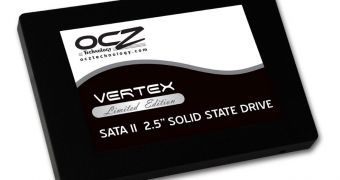With prices being the only real issue that has prevented SSDs from threatening the place of hard disk drives, the recent report stating that prices are shifting may come around as more than a little intriguing.
As end-users well know, hard disk drives are and have been the most widespread and affordable means of providing PCs with storage for many years.
HDDs have also become more and more compact now that platter data density has reached level allowing even 3TB of storage on regular-sized models.
In the meantime, solid state drives have been growing in popularity thanks to their endurance, zero noise generation and, most importantly, very high performance.
Basically, SSDs are much faster than HDDs, being capable of both reading and writing speeds of up to over 270 MB/s, depending on the SSD controller chip, and this is not counting PCI Express SSDs, which go well over 1 GB/s.
Nevertheless, pricing issues have kept most higher-end SSDs, especially SLC-based ones, confined to the enterprise market.
Still, consumer PCs have begun to use such devices more actively, and it seems that prices are well on their way to no longer being an issue.
As Digitimes has it, hard disk drives have been getting more expensive lately, even as SSD prices have been dropping.
The main reason behind SSD price decline is the transition to 20nm processes that Intel, Micron, Samsung, Toshiba and Hynix are in the middle of.
Nevertheless, prices are still about 10 times higher than that of hard disks, even despite the 10-15% drop during the fourth quarter.
Meanwhile, HDDs have gotten 4-5% more expensive, particularly the 500 GB models, as Seagate, Western Digital, Toshiba and Hitachi has been reducing their capacities.
Overall, SSD sales should be good during the holiday season, although still constrained compared to those of the still cheaper HDDs.

 14 DAY TRIAL //
14 DAY TRIAL //